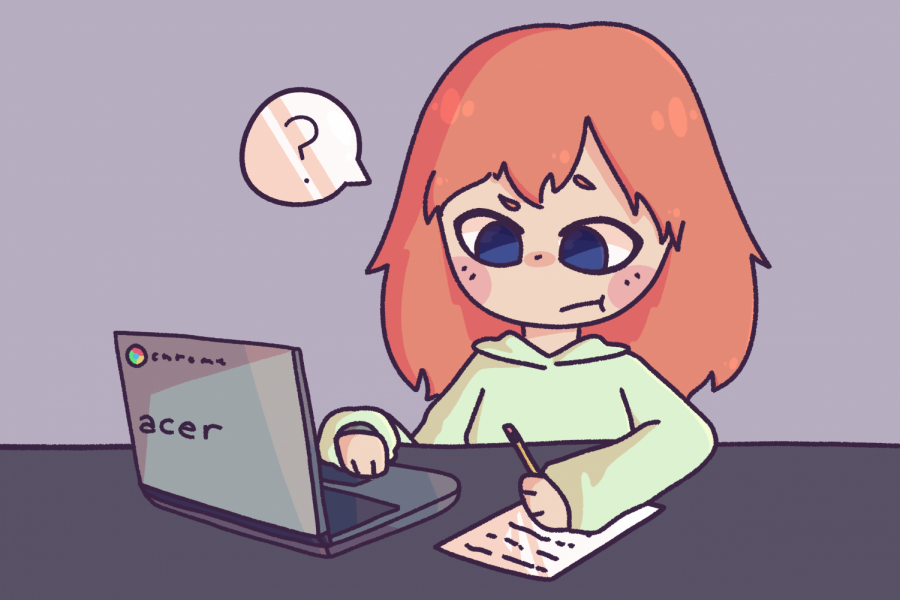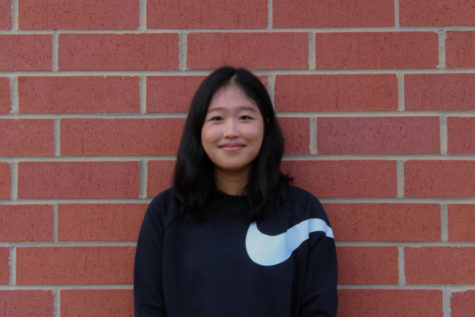More MCPS students are failing during virtual learning
Graphic Courtesy of Julianne Cruz
Virtual school can quite literally distance students from learning, hindering motivation, focus, and performance.
January 22, 2021
As the first semester of this unprecedented school year comes to a close, MCPS has found concerning data regarding students’ academic performances in the virtual setting. The county’s report provided that across all grade levels and subjects, the number of students failing their courses increased by an average of 18% compared to previous years, particularly affecting those in poverty, special education, or ESOL.
MCPS has made immediate adjustments to the grading system, allowing more leniency for students to receive a higher mark. For example, they imposed a limit on the number of tests and homework assignments that can be given to students and all incomplete or unsubmitted work would receive an automatic 50% credit. These changes surely lifted the burden of the academic course load, however, critics say that the new grading policy does not encourage learning or allow easier learning but instead, covers up the fundamental problems with misrepresentative numbers.
Junior Kalina Sloat expressed her concern on behalf of her organization, Lifting Lives, which strives to combat systemic inequalities in the American education system.
“There are wide disparities between different school districts, as well as huge differences in the amount of money that each school has.” She continued. “In some communities, schools are really struggling to make sure that their students have the necessary technology and school supplies to stay focused and involved with virtual learning, and those are the schools that our organization is focused on assisting through this transition.” As such, Sloat emphasizes the importance of making education more accessible for all and fair in order to truly succeed in improving poor performances.
“A key issue MCPS needs to address is its school boundaries. An effort needs to be put in to not only study the boundaries but to actively change them, which many feel would help address school crowding problems and integrate various socioeconomic communities.”
In a different perspective, some courses are better taught and learned through interactives ranging from student discourse, hands-on activities, or physical activities, all of which virtual learning cannot provide. Divya Vakkalanka, a junior at Northwest High School shares that the lack of presence or engagement of the lessons shared on a screen is a leading cause of failure. “As part of MCR and Moco4Change, I’ve noticed these struggles that students have had. The virtual platforms can be difficult to navigate or manage and the learning environment is quite distracting as well,” she said. These weak learning conditions and the lack of social interaction between students may lead to mental health struggles. Kidan Williams, a Clarksburg High School junior shares her personal experience.
“I feel lethargic most days and don’t have the work ethic to get my assignments done. The spark and excitement of school are just not there.”
Despite the uncertainties and discomforts of the current state, everyone in the MCPS community has learned and achieved a lot throughout these months.
Sloat concludes, “We encourage the student body to be conscious of the difficulties that our community as a whole is facing, as well as staying aware about different fundraising and volunteering opportunities so that they can help in any way that they are able to.” More information and resources about educational inequality can be found at Liftinglivesnonprofit.org.



